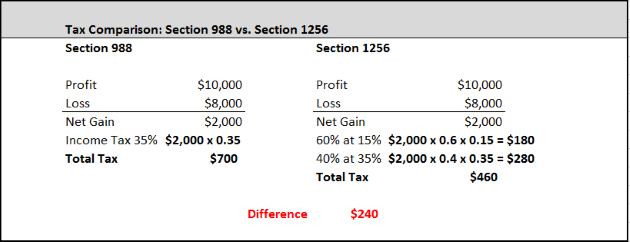When venturing into the world of financial markets, understanding the intricacies of taxation is crucial for any astute trader. Options trading, in particular, presents a unique set of tax implications that require careful consideration. Navigating these complexities can empower you to optimize your trading strategies and minimize your tax liability.

Image: www.pinterest.com
Options, by nature, provide traders with the flexibility to speculate on the future direction of an underlying asset without the obligation to buy or sell. This versatility, however, comes with specific tax considerations that differ from those associated with traditional stock trading. The taxation of options falls under the broad umbrella of capital gains tax, with the classification of your gains and losses depending on the duration of your holding period.
Options held for a period of 12 months or less are considered short-term. Profits from the sale of these short-term options are taxed as ordinary income, subject to your marginal tax bracket. This means that your gains will be taxed at the same rate as your regular income, potentially resulting in higher tax liability. Therefore, it’s essential to factor this into your trading strategy, especially for short-term traders aiming to capture quick gains.
In contrast, options held for more than 12 months qualify as long-term. Profits from long-term options transactions are taxed at a lower capital gains rate, which is typically more favorable than ordinary income tax rates. This tax advantage can be substantial for traders who adopt a longer-term approach to options trading, allowing them to defer and potentially reduce their tax burden.
It’s important to note that the tax treatment of options premiums also depends on your trading status. If you are deemed a “dealer” in options, your profits and losses may be classified as ordinary income or loss. This designation is typically reserved for those actively involved in the frequent buying and selling of options, generally not applicable to casual traders.
Furthermore, the sale of options may also trigger “wash sale” rules. These rules apply when you sell an option at a loss and reacquire substantially identical options within 30 days. In such cases, your loss may not be immediately deductible and will be added to the cost basis of the replacement options. This can effectively defer your tax loss recognition until you ultimately sell the replacement options.
Understanding these tax implications and strategically planning your options trades can significantly impact your overall profitability. Employing tax-saving strategies, such as offsetting gains with losses or utilizing tax-advantaged accounts like Individual Retirement Accounts (IRAs), can further optimize your trading outcomes and reduce your tax liability.
As the world of finance evolves and regulatory landscapes shift, it’s crucial to stay abreast of the latest tax laws and rulings pertaining to options trading. Consulting with a qualified tax advisor can provide personalized guidance and ensure that your trading activities align with tax code requirements, maximizing your returns while minimizing tax burdens.
In conclusion, understanding the tax implications associated with options trading is essential for every trader. By familiarizing yourself with the nuances of capital gains taxation, short-term versus long-term holding periods, and other relevant tax laws, you can navigate the financial markets with greater confidence and efficiency. Incorporating these considerations into your trading strategy can not only enhance your profitability but also mitigate your tax liability, empowering you to make informed decisions that maximize your overall financial success.

Image: porukeicestitke.com
Tax For Trading Options
https://youtube.com/watch?v=g_4TmzND1ks






